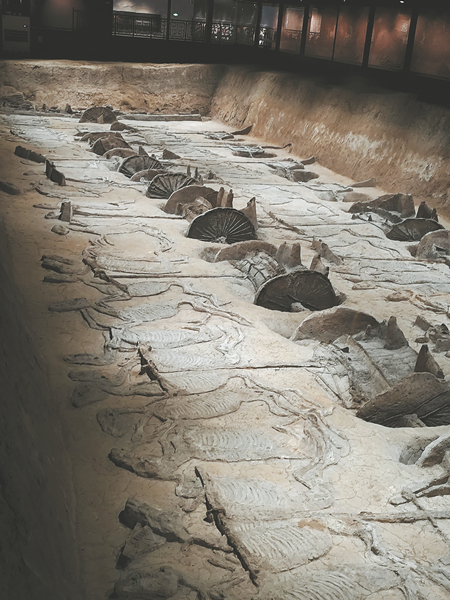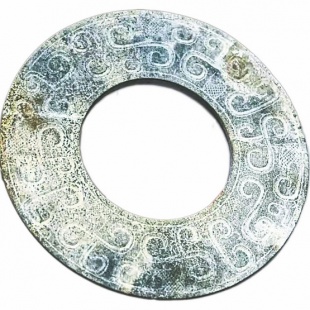Horses, history, chariots and verses


Apart from these artifacts, Chu also produced one of ancient China's most famous poets, Qu Yuan, who was one of the state elites. The Dragon Boat Festival, which is held on the fifth day of the fifth lunar month, commemorates the great poet, who drowned himself in the Miluo River after hearing of his state's fall. His romantic verses have had a far-reaching influence over Chinese poetry.
According to Zhou, during the Spring Festival, any visitors able to recite at least 20 of Qu Yuan's verses could get free admission to the mausoleum. Tickets are otherwise priced at 85 yuan ($12). And, as this year is the Year of the Dragon, anyone born in the Year of the Dragon is entitled to a half-priced ticket in celebration of the Lunar New Year.
"It's hard to recite Qu Yuan's verses because many of the characters he used are difficult to pronounce. We hope that the free-ticket policy can spark interest in Chu culture," says Zhou, who has worked at the park for eight years and has seen its growing popularity in recent years.
Jia says that it's natural for people to seek other forms of enjoyment once their material needs have been satisfied. "We are always interested in exploring where we come from," he explains.
The heritage park is about a 40-minute drive from Jingzhou city in Hubei province. It has welcomed visitors from all over the world, and Zhou says that, during Spring Festival holidays, it's quite common for tourists to drive to the park from all over the country.
Contact the writer at dengzhangyu@chinadaily.com.cn





































